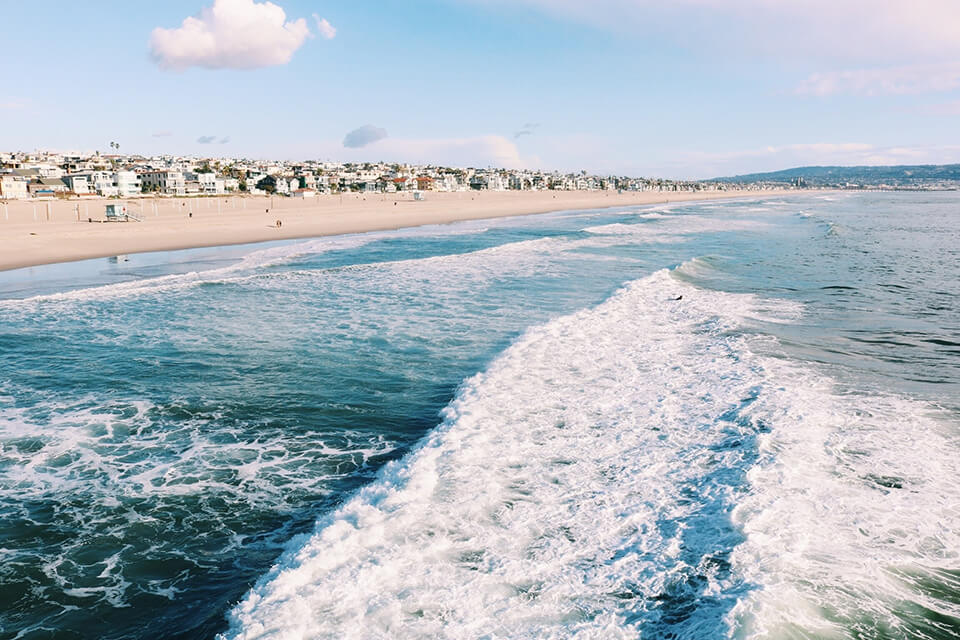COP28: Experts on climate and environment
Engineering, Humanities, Social Sciences, Peter B. Gustavson School of Business, Education, Human and Social Development, Science

The University of Victoria experts listed below are available to media for comment on topics related to the UN Climate Change Conference COP28 UAE, which takes place from Nov. 30 to Dec. 12 in Dubai, United Arab Emirates. This year’s conference themes are technology and innovation, inclusion, frontline communities and finance.
UVic is ranked 3rd in the world and 1st in Canada for climate action in the 2023 Times Higher Education Impact Rankings. Learn more about our commitment to meeting the United Nations Sustainable Development Goals through our Climate and Sustainability Action Plan.
Basma Majerbi (Gustavson School of Business) is an expert in sustainable finance, a lead investigator on UVic’s Accelerating Community Energy Transformation initiative, a core member of the Coastal Climate Solutions Leaders program, and founder of the Impact Investing Hub, which accelerates investment in climate solutions. She can speak about climate-related financial risks and opportunities, and to ESG and impact investing for driving climate solutions and social change. (Email at majerbi@uvic.ca)
Belinda kakiyosēw Daniels (Indigenous Education) is an expert in Indigenous Language Revitalization. She can discuss the importance of land-based learning and the preservation of Indigenous languages to strengthen identity and communities in the face of the climate crisis. (Email at belindadaniels@uvic.ca)
Christina Hoicka (Geography/Civil Engineering) is an expert in low-carbon energy policy, transitions, innovation and technologies such as electrification and green hydrogen. She can speak to the inclusion of equity deserving communities in energy transitions, renewable energy integration, and regional, rural and urban community involvement in energy transitions. (Email at cehoicka@uvic.ca)
Curran Crawford (Mechanical Engineering) is the executive director of UVic’s Accelerating Community Energy Transformation initiative and an expert in sustainable energy systems design and operation. He can discuss renewable electricity generation and integration into both on- and off-grid communities, energy storage and e-fuels, carbon dioxide removal and sequestration, and transportation electrification. (Contact: curranc@uvic.ca)
Ian Mauro (Pacific Institute for Climate Solutions (PICS)) is an expert in climate action partnerships, community-based climate projects, and multimedia climate education and knowledge mobilization. A filmmaker and scientist, and executive director of PICS, Mauro can discuss climate science, society and sustainability, and the importance of interweaving academic, local and Indigenous knowledges. Mauro is co-chairing a COP28 roundtable with UVic Law professor Marie-Claire Cordonier Segger. (Email at picscomm@uvic.ca)
Jillian Roberts (Education/Curriculum and Instruction) is an expert in educational psychology. She can discuss children’s psychology and resilience theory as it relates to children who are experiencing climate anxiety. (Email at jroberts@uvic.ca)
Julia Baum (Biology) is an expert in marine ecology and conservation and a UVic President’s Chair. She is the director of Coastal Climate Solutions Leaders (CCSL), a first-of-its-kind Canadian graduate training program that prepares students to tackle the climate crisis head-on. She can discuss the impact of human-caused climate change on the ocean and its effects on marine ecosystems and people. (Email at baum@uvic.ca)
Kara Shaw (Environmental Studies) is an expert in the political ecology of energy transitions, and ways in which frontline communities are both resisting the expansion of fossil fuel infrastructure and advancing climate solutions. She is the director of the new Certificate in Transformative Climate Action, which focuses on the social and political dynamics of climate action, and of the UVic Sustainability Scholars Program, which pairs graduate students with community partners to research solutions to current sustainability challenges. (Email at shawk@uvic.ca)
Kate Moran (Ocean Networks Canada/Faculty of Science) is an expert on ocean observing, the Arctic and climate change. On behalf of Ocean Networks Canada, she is a signatory to the COP28 Dubai Ocean Declaration that recognises the critical role of the ocean in regulating climate change and calls for global expansion of ocean monitoring. She can discuss emerging technologies and advancements in ocean-based carbon dioxide removal as a climate solution. Moran co-led the Integrated Ocean Drilling Program’s Arctic Coring Expedition, which recovered the first paleoclimate record from the Arctic Ocean. An engineer by training, Moran was appointed an Officer of the Order of Canada in 2023 and is an elected American Association for the Advancement of Science Fellow. (Email at kmoran@uvic.ca)
Katya Rhodes (Institute for Integrated Energy Systems/Public Administration) is a climate policy expert investigating effective and acceptable pathways to reduce climate change. She can discuss climate policy options to meet Canada’s 2030 and 2050 targets. (Email at krhodes@uvic.ca )
Kohen W. Bauer (Ocean Networks Canada at UVic) is an expert in marine biogeochemical cycles, ocean deoxygenation and the evolution of the earth-life-climate system. He can discuss marine carbon dioxide removal pathways and approaches, as well as ocean observing systems for monitoring climate impacts. (Email at kohenbauer@oceannetworks.ca)
Maia Hoeberechts (Ocean Networks Canada/Computer Science) is an expert in bringing together technological solutions with Indigenous and community knowledge to understand our changing ocean. She can discuss building respectful ocean and climate partnerships with Indigenous communities, creating engagement opportunities for youth, addressing community climate-related challenges and priorities in BC and the Arctic, and implementing community-based ocean monitoring programs. (Email at maiah@uvic.ca)
Meghan Richey (PhD Candidate, Interdisciplinary Studies/Education/Environmental Studies) is an expert in the mental health impacts of climate change. She can discuss how youth and young adults, who are disproportionately affected by climate change and who are often on the frontlines of climate activism, are impacted by climate change. (Email at mrichey@uvic.ca)
Peter Dietsch (Philosophy/Centre for Global Studies) is an expert in economic ethics, including fiscal and monetary policy, tax justice and income inequality in the context of climate change. Among other topics, Dietsch can discuss the role of central banks in the green transition as well as issues around environmentally responsible investment. (Email at pdietsch@uvic.ca)
Sean Holman (Writing) is an expert in media coverage of climate change and the director of the Climate Disaster Project. As the Crookes Professor of Environmental & Climate Journalism, Holman is focused on the human issues of the climate crisis. He can speak to the ways the news media covers climate change, and how the media is a powerful determinant in society’s ability to adapt to it—both in making more informed decisions and in creating more equitable and resilient communities to better withstand the chain of emergencies that will define the rest of our lives. (Email at smholman@uvic.ca)
Simi Kang (Gender Studies) is an expert in environmental racism, coastal restoration and climate migration. They can discuss the impacts of environmental policy on underserved and racialized people, the effects of multiple forms of displacement on communities relegated to environmental sacrifice, and coast-dependent labour and food production. (Email at simikang@uvic.ca)
Tamara Krawchenko (Institute for Integrated Energy Systems/Public Administration) is a lead investigator on UVic’s Accelerating Community Energy Transformation initiative and an expert in comparative public policy and territorial development. She can comment on place-based climate change policies as a means of managing a just transition to clean energy. (Email at tamarakrawchenko@uvic.ca)
– 30 –
Photos
Media contacts
Philip Cox (University Communications + Marketing) at uvicnews@uvic.ca

